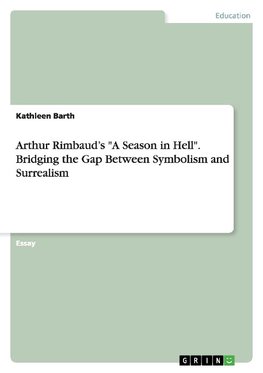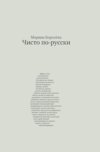
-
 Anglický jazyk
Anglický jazyk
Arthur Rimbaud's "A Season in Hell". Bridging the Gap Between Symbolism and Surrealism
Autor: Kathleen Barth
Essay from the year 2015 in the subject French - Literature, Works, grade: A 99.0, , course: ENGH 302 Advanced Composition, language: English, abstract: A chronicle of the symbolists' influence over Rimbaud's early poetry, and how he laid the foundation... Viac o knihe
Na objednávku, dodanie 2-4 týždne
14.76 €
bežná cena: 16.40 €
O knihe
Essay from the year 2015 in the subject French - Literature, Works, grade: A 99.0, , course: ENGH 302 Advanced Composition, language: English, abstract: A chronicle of the symbolists' influence over Rimbaud's early poetry, and how he laid the foundation for Surrealism with his exploration of the unconscious in "A Season in Hell".
As a young poet, Arthur Rimbaud expressed a keen desire of becoming a seer: one who forecasts the future through supernatural insight. Throughout his career, he sought visionary status by pushing the boundaries of poetic expression with his efforts of materializing the supernatural in his poetry. Rimbaud began fulfilling his goal by studying the work of the symbolists and incorporating their revolutionary modes of expression into his own poetry. Yet Rimbaud pushed the boundaries of poetic expression even further with his efforts to penetrate the deepest layers of the mind.
By 1873, Rimbaud began exploring the mysterious realm of the unconscious through his own method of psychoanalysis, a popular subject of Surrealism: a movement that entered the literary scene nearly four decades after the French Symbolists. Rimbaud portrays his unconscious thoughts and memories in A Season in Hell with the style he adapted from studying the symbolists. By composing A Season in Hell with the stylistic elements of Symbolism and the psychoanalytical focus that dominated Surrealism, Rimbaud bridges the gap between both poetic movements
- Vydavateľstvo: GRIN Verlag
- Rok vydania: 2015
- Formát: Paperback
- Rozmer: 210 x 148 mm
- Jazyk: Anglický jazyk
- ISBN: 9783656975670




 Nemecký jazyk
Nemecký jazyk 
 Ruský jazyk
Ruský jazyk 




